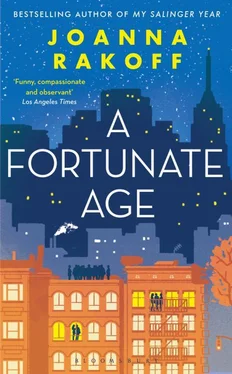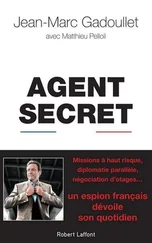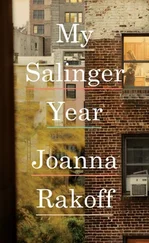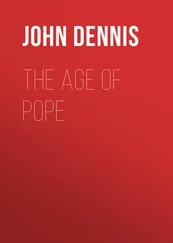Sadie, who had remained quiet all this time, neatly sipping her soup from the side of her spoon, now sighed heavily. “Of course,” she said, in such a way that it wasn’t clear whether she meant of course no one does any hiring around the holidays, what kind of fool would think otherwise, or of course Lil and Tuck had been dealt a wretched hand by fate, or of course Tuck believed himself to have been dealt a wretched hand by fate, when in fact he had clearly, obviously, of course , brought about his own bad fortune by being an egotistical ass.
Lil chose to believe the first. She nodded seriously at Sadie. “So there was no way he could even begin looking until last week. I think it was driving him crazy, feeling like there was nothing he could do.”
All of this was, of course, exactly what Tuck had told her, a week or so prior, when she’d timidly asked how the job search was going. “Lil, come on,” he’d said. “They’ll think I’m an idiot if I send out my résumé now.” He was lying on their couch—a low velvet thing they’d purchased at Ugly Luggage for $350—reading Wired , its lurid orange and silver spine glaring at her. Eighteen months earlier, when she’d first met him, Tuck had carried around battered volumes of poetry—Frank O’Hara, John Ashbery, Randall Jarrell—in an old army surplus bag. Now he professed himself incapable of focusing on the minutiae of verse. He read magazines and watched television.
“It’s my job ,” he told her when she commented on this change in his habits, over Thanksgiving weekend, which they’d spent alone at their apartment, eating a miniature turkey Lil had carefully roasted according to instructions in The Silver Palate Cookbook . They couldn’t afford to fly to L.A. or Atlanta—the wedding and rent had eaten up all their cash. “I’m writing about mass culture, about popular culture, not poetry , Lil. I need to know what’s going on.” Yes, Lil said, she understood that his job necessitated a certain immersion in the more banal aspects of contemporary life—though of course he seemed no longer to consider such things banal—but did he always have to be “working”? Couldn’t he read poetry on the weekends? “Lil,” he said, sighing brusquely. “I know it’s hard for you to understand. Since you were, you know, born in a bookstore.” He cracked a smile—that gorgeous, rare smile of his, which she couldn’t resist returning—and ran his hand proprietarily over her hair, a thrilling feeling. “But once you leave academia, it just starts to seem pretty irrelevant. It’s hard to get lost in a novel when you know it’s all a lie and what’s going on in the real world—the stuff I’m writing about for the magazine—is so exciting. And poetry is like…” He raised his hands up in a gesture of surrender. “No one actually reads poetry. We just fool ourselves into thinking it’s important.”
“It is important!” cried Lil. Over the summer, she’d worked at the poetry organization down in Soho, answering phones. And hundreds of people had called each and every day with questions about matters related to poetry. Tuck didn’t understand that poetry could save a person’s life, had saved her life, because she wasn’t born in a bookstore. She was from L.A . Her parents sat in front of the television each night and talked about the price of gas. She wouldn’t have made it through middle school without Frank O’Hara, high school without Plath. “Tuck, it is. How can you say that?”
“Lil, it’s not . Business is important. Money is important. Jobs. Economics. People’s day-to-day concerns. Poetry is a luxury.”
Lil felt certain he was wrong, but couldn’t articulate why and, thus, left the matter alone, eyeing Tuck nervously when he snapped on the television and tuned the channel to some moronic sitcom, which, only a short time earlier, he and Will Chase would have declared a vicious assault on art. Perhaps she was born in a bookstore, at least in the sense that she’d learned much about life from novels. But so had Beth and Sadie. And, for that matter, Will Chase, who’d done the whole Svengali thing: married some idiot, thinking he’d turn her into an intellectual. That’s the big difference, she thought, between novels—or movies—and life. In real life, people don’t actually change.
“So what happened,” Sadie asked her. “I thought Ed loved Tuck.”
“He did,” Beth confirmed. She and Will regularly got together with Ed, which put her in the uncomfortable position of possibly knowing more about the situation at Boom Time than did Lil and Tuck. “He does . He didn’t fire Tuck. He’s horrified by the whole thing.”
“Ed has no control anymore,” Lil explained, resting her cheek on her fist. “ You know. They said everything would be the same.” She turned to Emily. “The First Media people.”
“I know,” said Emily.
“But it wasn’t.” The girls nodded, lips pursed, eyes wide with concern. They’d heard about this in the fall. How the suits at First Media—or “Worst Media,” as the Boom Time staff took to calling them—after insisting that they wanted to maintain the magazine’s “voice” and “magic,” had fired Ed’s young section editors and replaced them with warhorses from the trades, tabloids, and glossies, who had, in turn, done away with the magazine’s structure and practices, under dictate from First Media’s balding CEO. The new regime required employees to arrive by nine clad in “business casual” attire (no jeans, flip-flops, sneakers, Hawaiian-print shirts, or T-shirts with logos or writing on them; no hats, unless necessary for the practice of one’s religion). No longer could Tuck roll in at eleven, send out for coffee and breakfast, chat with Ed for half an hour (in lieu of a staff meeting), and get to work around noon. Nor could his friend Jonathan, who had a baby and a house in Nyack, arrive at eight and leave at four, to give his wife a bit of a break (even if he’d won a Pulitzer for his reporting on the Gulf War). Nor could any of them, Ed included, while away an hour in the chill-out room, tossing around story ideas while reclining on plush bean bags, sipping slushies, or playing a round or two of Ms. Pac-Man or Frogger. First Media had moved the magazine from their loft at Broadway and Houston into the company’s anonymous corporate headquarters—acid green burlap cubicles, industrial carpeting—at Forty-first and Third.
“Maybe it’s not such a bad thing,” Beth suggested. “He was really unhappy, wasn’t he?”
“He was,” Lil admitted. And he wasn’t alone. Jonathan, whom Tuck worshipped, had taken a job at the culture desk of the Times . Others left for Boom Time ’s imitators, none of which had been taken over by larger corporations (yet). Ed locked himself in his small new office all day, allegedly reading copy and writing an eternally unfinished piece about web-based film distribution, but really, Tuck suspected, succumbing, in his own odd way, to despair: obsessively posting to tech listservs and typing screeds for his old usenet board and playing some creepy fantasy game involving orcs and elves. “He could barely get out of bed in the morning, in the end. I sort of knew this was going to happen. He was late—like, an hour late—every day. I told you, right, about the ID cards.” The “Slikowskers”—as the original staffers had taken to calling themselves—had so much trouble getting to work on time that the company had installed a swipe card system. In order to get in—or out—of their offices, they had to swipe their IDs. Hours were tallied each week, with particular emphasis on lunch breaks, which could be no more than a half hour. Which was kind of absurd, seeing as under Ed’s regime, they’d happily worked twelve-hour days.
Читать дальше












